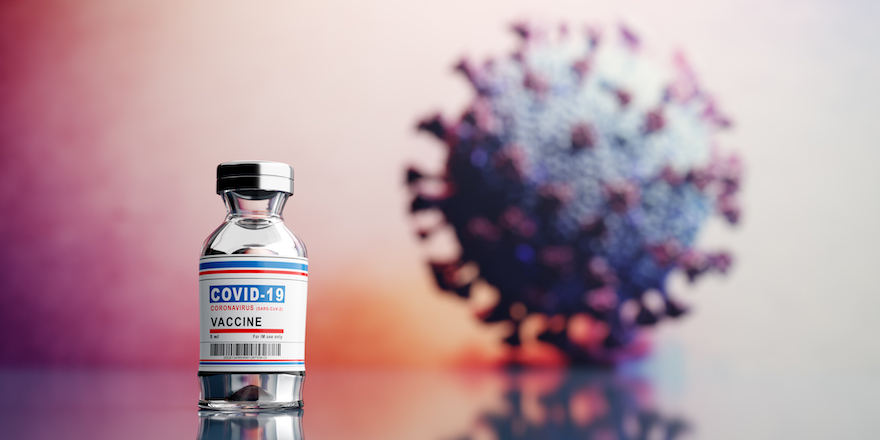University of Cambridge's Coronavirus Vaccine Enters Clinical Trial
Needle-free vaccine targets Covid-19 variants and future coronaviruses.

Safety trials are underway for a University of Cambridge-led vaccine that could be used as a booster targeting COVID-19 virus variants and relatives that threaten future coronavirus pandemics.
Needle-free vaccine: revolutionizing vaccine administration
Developed by Professor Jonathan Heeney at the University of Cambridge and spin-out company DIOSynVax, this is a next generation coronavirus vaccine administered through a needle-free ‘injection’ — a blast of air that delivers it into the skin in less than a tenth of a second by spring-powered jet injection.
This offers a possible future alternative to people who fear needle-based jabs. If successful, it could be scaled up and manufactured as a powder to boost global vaccination efforts, particularly in low- and middle-income countries.
How the virus attacks our body
SARS-CoV-2 uses ‘spike’ proteins on its surface to gain entry to host cells. These proteins bind to ACE2, a protein receptor on the surface of cells in our airways, allowing the virus to release its genetic material into the host cell. The virus hijacks the host cell’s machinery to allow itself to replicate and spread.
Vaccines inform our bodies about what dangerous infections look like and how to respond to them. This is much safer than becoming infected with the live virus, because it avoids the life-threatening effects the whole virus can have. Immunisation arms our immune system to look out for and block virus, or destroy cells that carry the spike protein, protecting us from COVID-19 disease. Unfortunately, SARS-CoV-2 is constantly mutating and the virus spike protein itself is changing. This raises the prospect of ‘vaccine escape’, where changes to the spike protein mean the immune system is no longer able to recognise it.
How the vaccine works
To get around this problem, the Cambridge team searched for new types of antigens — key regions of the virus — that are the same across coronaviruses that occur in nature, including in animals that carry them, such as bats.
While most COVID-19 vaccines use the sequence of the RNA for the virus spike protein from the first isolated samples of the COVID-19 virus in January 2020, this new DIOSvax technology uses predictive methods to encode antigens like the spike protein that mimic the wider family of coronavirus antigens, thus giving wider protection. The body’s immune cells take up the vector, decode the DIOS-vaccine antigen and present the information to the immune system.
Professor Heeney added: “These next generation DIOSvax vaccines should protect us against variants we’ve seen so far – alpha, beta, delta variants, for example – and hopefully future-proof us against emerging variants and potential coronavirus pandemics.”
Safety trials begin in Southampton
The first trials of DIOS-CoVax are being delivered by the NIHR Southampton Clinical Research Facility (CRF).
Professor Saul Faust, Clinical Chief Investigator and Director of the NIHR Southampton CRF, said: “This isn’t simply ‘yet another’ coronavirus vaccine as it has both COVID-19 variants and future coronaviruses in its sights. This technology could give wide-ranging protection to huge numbers of people worldwide.
Learn more about the University of Cambridge